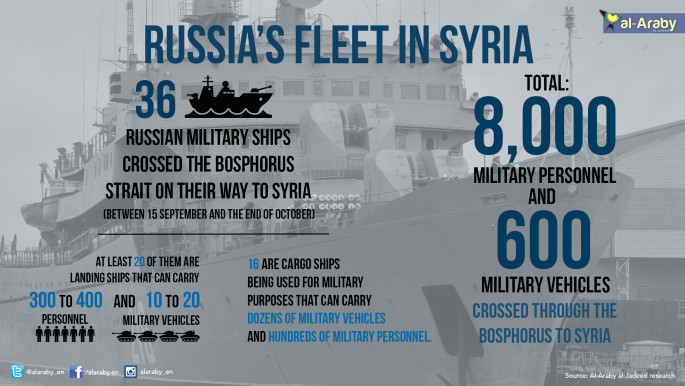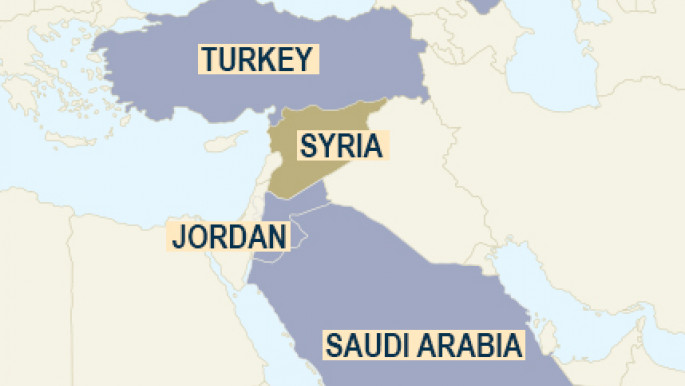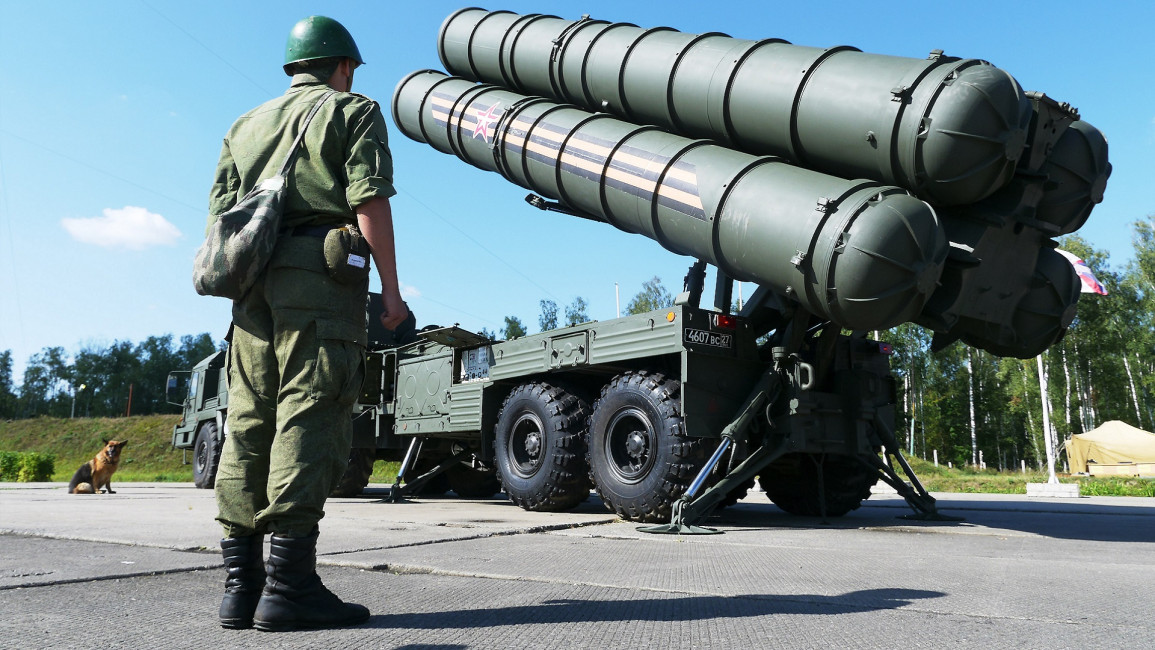Russian, Turkish FMs to meet over Syria jet incident
Turkish Foreign Minister Mevlut Cavusoglu spoke by phone with Russian counterpart Sergei Lavrov on Wednesday and they agreed to meet in the coming days, a Turkish foreign ministry spokesman said, a day after Turkey shot down a Russian warplane.
"In their discussion, agreement was reached to share details on the matter via diplomatic and military channels," spokesman Tanju Bilgic said in an e-mailed statement.
"We have serious doubts about this being an unpremeditated act, it really looks like a planned provocation," Foreign Minister Sergei Lavrov said at a press conference in Moscow after speaking with Turkish counterpart Mevlut Cavusoglu.
"We do not plan to go to war with Turkey, our attitude toward the Turkish people has not changed," Lavrov added, stressing that Moscow would however "seriously reevaluate" its ties with Ankara.
Lavrov also backed a proposal by French President Francois Hollande to close off the Syrian-Turkish border to prevent fighters from flooding into Syria, saying the idea may be raised by Hollande during his visit to Moscow Thursday.
"The [rescue] operation is successfully over. The pilot has been delivered to our base. Safe and sound," Shoigu said during a meeting of the Defence Committee, adding that the operation was performed by Russian and Syrian special forces.
The information that one of the two pilots from the downed plane is alive was released earlier on Wednesday by the Russian ambassador in France, Aleksandr Orlov. He said the pilot had been wounded.
| Read more on the Russia-Turkey crisis over Syria |
| -NATO calls extraordinary meeting after Turkey downs Russian jet -Russia jet in Turkish airspace 'was not the first' -What was Russia's airforce doing near Turkey's borders anyway? -Who are the Turkmen? |
Meanwhile, Russia is sending its most hi-tech air defence system to its airbase in Syria, the defence minister said Wednesday, as Moscow ratchets up its firepower over the war-torn country after the downing of its fighter jet by Turkey.
"The S-400 anti-aircraft missile system will be deployed to the Hmeimim airbase," Sergei Shoigu was quoted as saying by Russian news agencies.
Russia has also deployed a missile cruiser near Latakia and
is "ready to take down any aerial targets threatening its airbase near the Syrian city," according to Russian media.
In addition to anti-ship missiles, anti-submarine mortars and torpedoes, it has 64 Fort missiles, the naval version of the S-300 long-range air defence system. The missiles can engage targets at a range of up to 150km, which is enough to cover all of southern Turkey from Latakia.
 |
| [Click to enlarge] |
Russia and Turkey urged to de-escalate
The shooting down of a Russian warplane by Turkey has complicated the process of finding a political solution in Syria and everything must be done to avoid a further escalation, German Chancellor Angela Merkel said Wednesday.
"We need to do everything to avoid an escalation," she said in a speech in the lower house of parliament. "Of course every country has a right to defend its territory but on the other hand we know how tense the situation is in Syria and in the surrounding area. I spoke yesterday with the Turkish prime minister and asked him to do everything to de-escalate the situation."
President Tayyip Erdogan said Wednesday Turkey did not want any escalation after it shot down a Russian fighter jet, saying it had acted simply to defend its own security and the "rights of our brothers" in Syria.
 |
|
Speaking at a business event in Istanbul, Erdogan said the jet had been fired at while in Turkish air space but had crashed inside Syria, although some parts of the plane landed in Turkey and injured two Turkish citizens.
"We have no intention of escalating this incident. We are only defending our own security and the rights of our brothers," Erdogan said, adding Turkey's policy in Syria would not change.
"We will continue our humanitarian efforts on both sides of the (Syrian) border. We are determined to take all necessary measures to prevent a new wave of immigration."
The shooting down of the Russian warplane near the Syrian border Tuesday was one of the most serious publicly acknowledged clashes between a NATO member country and Russia for half a century.
A US official told Reuters Tuesday that Washington believed the jet was hit inside Syrian airspace after a brief incursion into Turkey, an assessment based on detection of the heat signature of the aircraft.
But Turkey, in a letter to the UN Security Council, said it shot down the jet in its air space. Along with a second plane, the aircraft flew more than a mile into Turkey for 17 seconds despite being warned 10 times while approaching to change direction, the letter said.
Turkey's NATO allies Wednesday called for a rapid de-escalation in tensions between Ankara and Moscow after Turkish fighter jets shot down a Russian war plane on the Syrian border, sparking fears of a wider conflict.
Moscow said one of the pilots was killed by fire from the ground after parachuting out of the burning plane Tuesday.
The defence ministry said a Russian soldier was also killed when a helicopter search-and-rescue operation came under fire although others were evacuated.
With the incident risking serious harm for Ankara-Moscow relations, Turkey said the Russian plane had violated its air space 10 times within a five minute period, but Russia insisted it had never strayed from Syrian territory.
 |
Moscow 'furious'
President Vladimir Putin reacted furiously to what he described as a "stab in the back committed by accomplices of terrorists", and insisted the plane had posed no threat.
Putin said the plane had been attacked when it was 1 km inside Syria.
|
||
The shooting also risks derailing efforts to bring peace to Syria that were gaining tentative momentum following the November 13 Paris attacks claimed by Islamic State (IS) militants who control swathes of northern Syria.
US President Barack Obama said Washington's NATO ally Turkey had a right to defend its airspace but said his priority was to make sure the standoff did not escalate.
"I think it is very important for us to right now make sure that both the Russians and the Turks are talking to each other and find out exactly what happened, and take measures to discourage any kind of escalation," Obama told reporters.
"Hopefully, this is a moment in which all parties can step back and make a determination as to how their interests are best served."
Into the 'quagmire'
As well as cancelling a visit to Turkey planned for Wednesday, Russia Foreign Minister Sergei Lavrov warned Russians against travel to the country, which would be a huge blow for the Turkish tourism industry.
Turkey's pro-government press applauded the shooting down, with Ilnur Cevik in Daily Sabah saying the Russian incursion was "the last drop for Turkey to break its silence towards Russia's violence in the region".
However columnist Mehmet Yilmaz in the mainstream Hurriyet daily accused Erdogan of plunging Turkey into a "quagmire", warning of "grave political and economic consequences for Turkey".
The repercussions of the incident also affected global markets with oil prices turning higher and stocks down with shares in airlines and travel firms particularly hit.
Russia 'still prepared' to work with Turkey
Russia would be prepared to "create a joint staff" to fight IS in which Moscow would work with France, the United States and even Turkey, the Russian ambassador to France said Wednesday.
"We are prepared to... plan strikes on Daesh (ISIS) positions together and create a joint staff with France, the US, with all the countries who want to be in this coalition," said Alexander Orlov.
|
||
He told Europe 1 radio that despite rising tensions after Turkey downed a Russian military jet Tuesday, "if the Turks want to be in (the joint staff) as well, they are welcome".
Speaking following talks at the White House between French President Francois Hollande and Barack Obama Tuesday, the US president said it would be "enormously helpful" if Russia would work with the US and others to bring about an end to the war in Syria.
But Obama cautioned that US forces could only work with Russian forces if Moscow concentrated its bombing in Syria on IS extremists, and not on other rebel groups opposed to Moscow's ally, Syrian President Bashar al-Assad.
Addressing the downing of the Russian jet by a Turkish air-to-air missile, Obama also said that if Russia focused on hitting IS targets "some of those conflicts or potentials for mistakes or escalation are less likely to occur".
Iran warns of consequences
Iranian Foreign Minister Mohammad Javad Zarif phoned his Russian counterpart Tuesday night to express his country's wariness of the downing of the Russian jet near the border with Turkey, said Iranian Foreign Ministry spokesman Hussein Jaber Al-Ansari Wednesday.
But Iran appears to have stopped short of condemning Turkey's actions.
The incident will further compound the Syrian crisis, Zarif told Sergei Lavrov, and sends the wrong message to those he described as "terrorists" there.
Ansari, in statements quoted by the Mehr news agency, said Iran was fully aware of the sensitive situation in Syria which he said could have global implications, and affirmed the need for "real" international cooperation to defeat terrorism.
Ankara and Moscow are on starkly opposing sides in the over four year Syrian civil war, with Turkey wanting to see the ousting of President Bashar al-Assad but Russia one of his last remaining allies.
There had been fears of such a mid-air incident since Russia launched air strikes in Syria in September, to the consternation of nations already involved in a US-led anti-IS coalition.
Turkey had bitterly condemned Russia's campaign, saying it was aimed at hitting Syrian rebels and buttressing the Assad regime rather than hurting IS extremists.
In the days leading up to Tuesday's incident, Ankara had also accused Russia of bombing villages in northern Syria populated by Turkmen, a Turkic speaking minority with close ties to Turkey.



